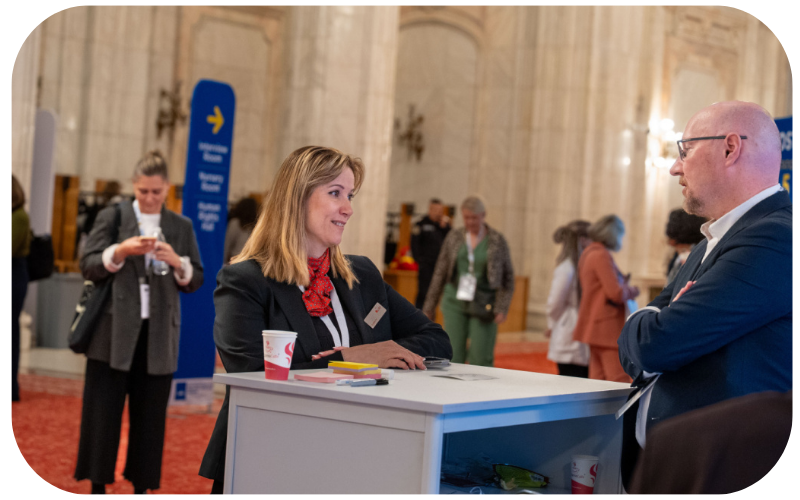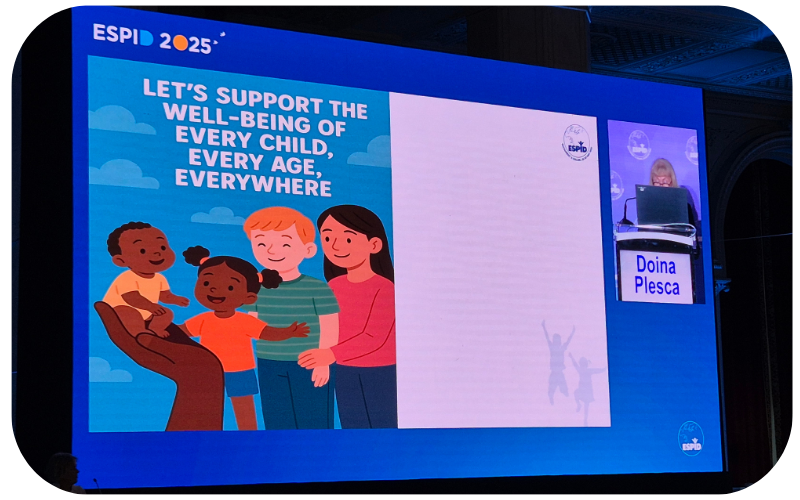
A Personal Cost
Recently, I had an insightful conversation with a remarkable peer in the events industry. We spoke not only about the importance of prioritising sustainability in business events, but also about the emotional toll it can take on sustainability professionals and event experts who dedicate much of their time and energy to driving this change.
We both recognised that behind the inspiring mission of creating more sustainable events, there is also a personal cost. Many of us experience emotional and psychological challenges along the way — feelings of loneliness, tension, burnout, and even eco-anxiety that are, unfortunately, not uncommon.
What the Research Shows

A recent study by Oxford Brookes Business School in partnership with the Climate Change Coaches (reported by the Institute of Sustainability and Environmental Professionals (ISEP)) involved a survey and interviews with 159 sustainability professionals, confirming that a significant number of sustainability practitioners experience burnout, often linked to isolation and the feeling of being overwhelmed. The study found that 62% of sustainability professionals have experienced burnout, a figure that is supported by other research highlighting the emotional toll of the work. The researchers describe the green transition as a “people-change challenge” and recommend training in specialised coaching skills as a solution that can enable sustainability practitioners to collaborate effectively, inspire teams, navigate complexity, balance competing interests, and maintain personal resilience. Unlike other roles, sustainability jobs require balancing scientific rigour, moral conviction, and social persuasion.
Behind all the sustainability and innovation efforts there are, first of all, people — passionate, committed human beings who often give far more than what’s in their job description. And that passion can come with a cost. Many of us who care deeply about sustainability have likely felt it — the frustration when progress feels too slow, the loneliness of being the only one in the room talking about recycling, net zero, or carbon reduction, and the quiet exhaustion that comes from constantly trying to convince others that this work is real and that it truly matters.
The conflict of the Purpose
I am sure that most of the event sustainability professionals are deeply driven by purpose — both personal and professional. Yet, this sense of purpose can sometimes come not only at the price of exhaustion, but also with the weight of responsibility, especially when the change we drive feels slow or unsupported. Those of us who are deeply involved in this field know that while this work is deeply meaningful, it can also be emotionally draining. There is certainly a hidden weight of trying to do the right thing, even in our industry, which adopts numerous sustainability initiatives and great innovations.
When organising events, we bring people together, so they all can share ideas, inspire innovation, and spark change — and yet, bringing people together comes with a real environmental impact.
Balancing these two realities can feel like walking a tightrope. We want to deliver incredible experiences, but also make sure those experiences don’t harm the planet and make a positive impact. And that’s not an easy task when budgets, timelines, and expectations are all pulling in different directions.
Common Feelings
Here are some common feelings that many of us might have experienced:
- Loneliness or isolation — even when others acknowledge that sustainability is important, it’s not always treated as a shared responsibility. Many feel it’s “not the right time” or that they have other priorities, leaving us to carry the cause alone.
- Burnout and frustration — from constantly pushing for change within systems, companies, associations, or events that are often slow to evolve.
- Eco-anxiety — the persistent worry that our efforts might not be enough to make a real difference, and the fear that all our work could be in vain.
- Imposter Syndrome – every day questioning if our work is meaningful or impactful enough, and if we really know what we are talking about.
It’s not that we don’t love what we do — we do. But carrying the weight of the planet (and sometimes the whole event industry) on our shoulders can be exhausting.
Take care of the people who care

That’s not an easy one, but surely possible. Here are some ideas that we can implement and practice every day:
- Find your network or your tribe:
Join networks, online groups, or local meetups where you can share challenges and small wins. Sometimes, just knowing you’re not alone makes all the difference. - Celebrate every success:
Not every initiative has to be a change maker. Even baby steps — like 1:1 talk with a colleague about the sustainability, swapping single-use lanyards, replacing cut flower bouquets with rented plants, and adding dancing or fun activities can create a meaningful impact. - Leading the way, share it with others.
Leadership in sustainability starts with you — but it doesn’t end there. When responsibility is shared across every department, event planners, project, and role, the load becomes lighter and the impact much greater. - Protect your energy. Set boundaries, take breaks, and take a deep breath before every task, even if it seems challenging or impossible, and remind yourself that you are not in this alone.
- Go back where you started.
Whenever it feels difficult or even impossible, go back to the reason you started this journey. This will remind you why you are here. - Organisational support:
Make sure that your leadership is aware of and supports the embedding of the mental health and well-being initiatives within the sustainability strategies.
We are all Human
A more sustainable event industry depends on the people who care and care deeply. We all should be able to acknowledge that these efforts and the challenges behind them, as well as the feeling of loneliness or burnout or eco-exhaustion, are what make us human.
Sustainability is not only about the planet — it’s also about the people behind the mission. By fostering a sense of community and belonging, supporting emotional well-being, and embedding empathy into organisational culture, we can ensure that sustainability professionals are not only making events greener, but also shaping an events industry into a more compassionate, connected, and resilient one.

About the Author
This article was written by Elena Fis, Sustainability Manager at Kenes Group. Elena leads the company’s global sustainability strategy and supports project teams in embedding responsible practices throughout event planning and delivery. Her work focuses on helping organisations navigate both the environmental and human aspects of sustainability, fostering collaboration, resilience, and meaningful change across the meetings industry.